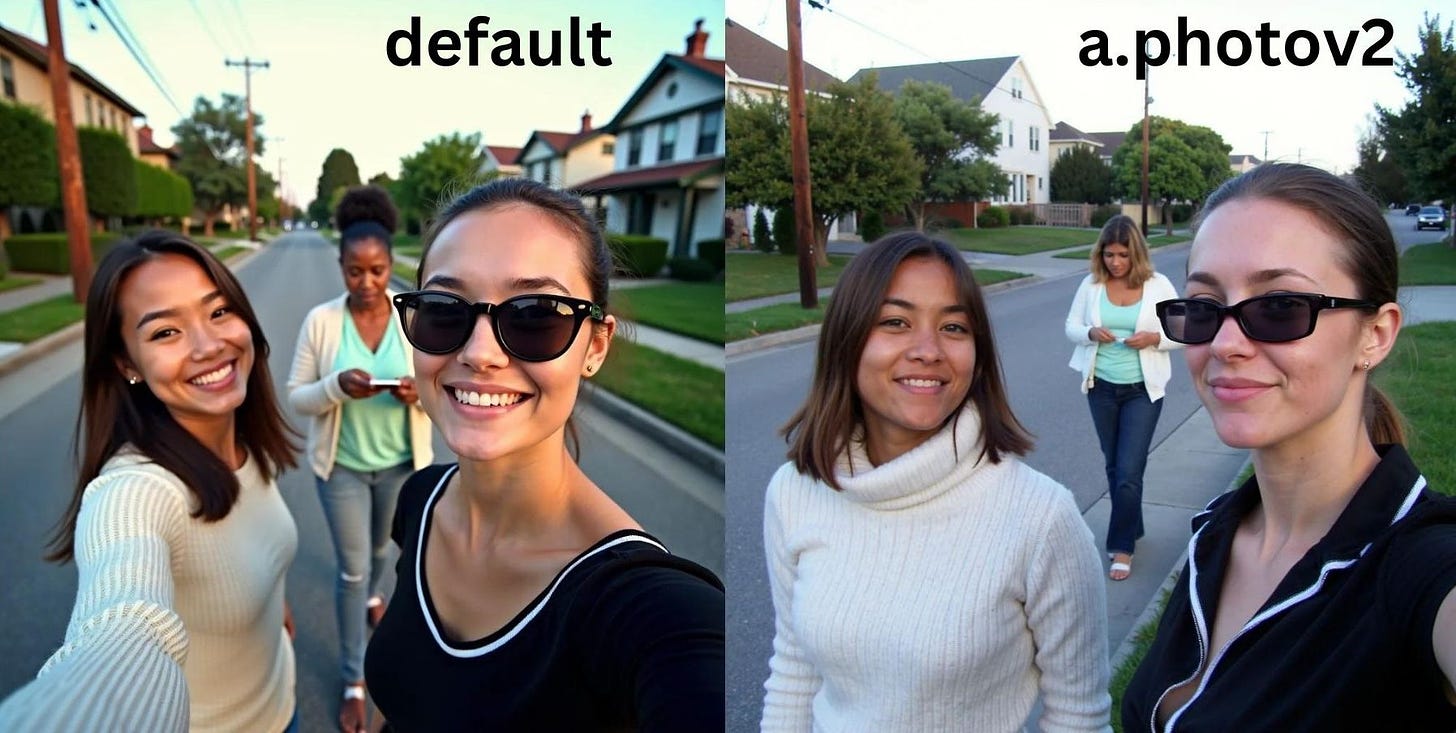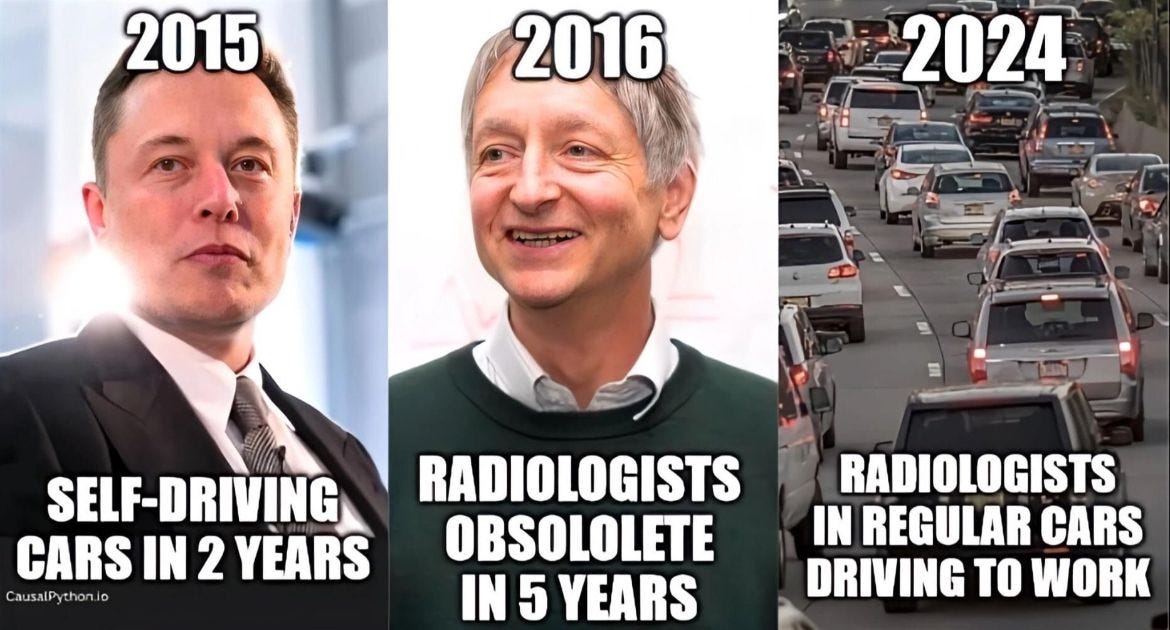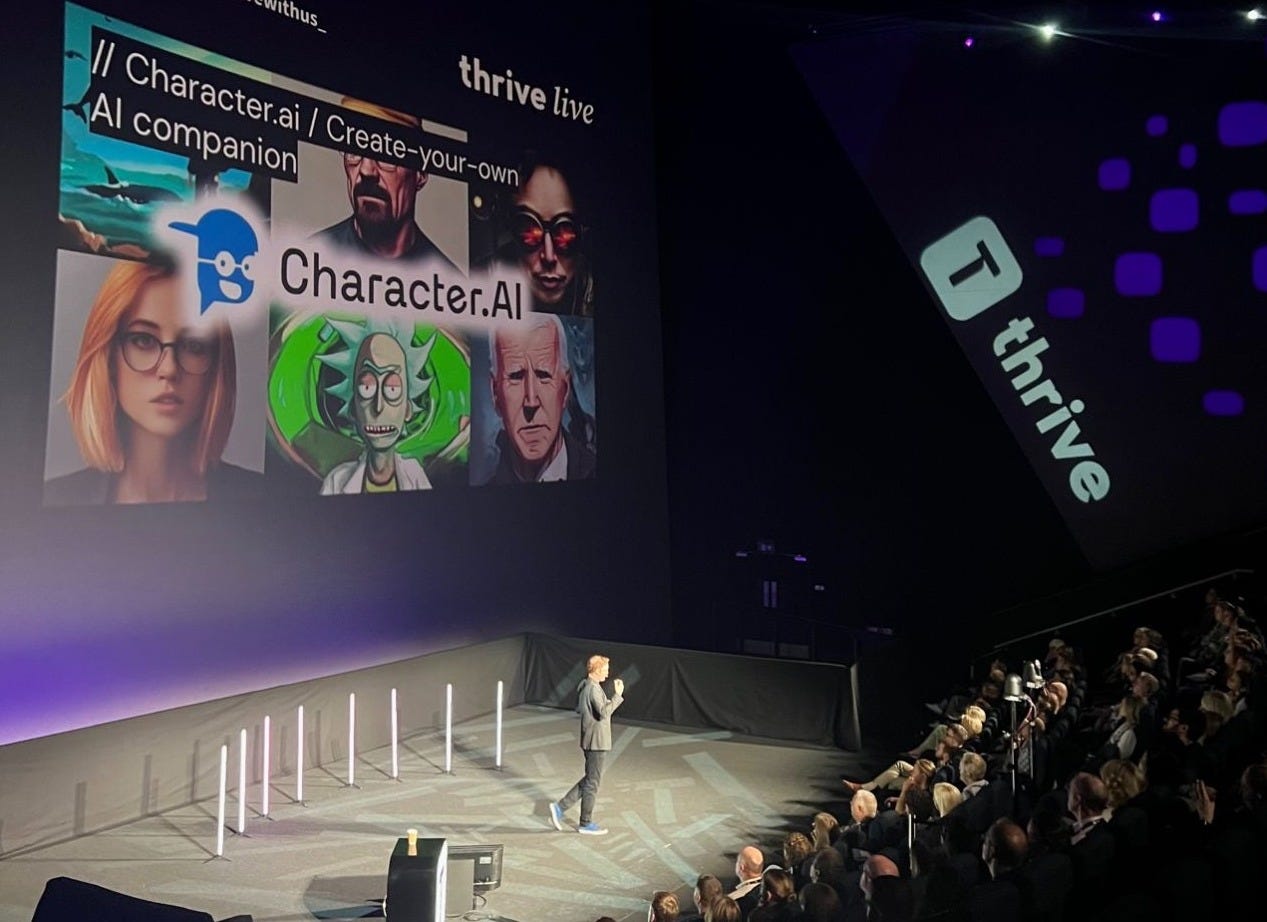It’s September. Which means for those of us in the Northern Hemisphere, serious back-to-school vibes. New energy. A sense of optimism and purpose.
With that in mind, this week I wanted to bring you a snapshot of what I’m thinking about as we head into the final months of the calendar year. As always, these provocations are inspired by some of the most thought-provoking and expectation-shifting innovations from the last few months.
Think of it as your cheat sheet for the rest of the year. I'll bet that at least one of these could reshape your organisation's strategy, if you let it.
But remember: no one can predict the future. The trick is to use today’s signals as prompts to ask, ‘What if this becomes normal? How will this impact our industry?’
And, most crucially, ‘how can we respond now?’
As we approach Q3/4 planning season, many of you will be looking ahead to 2025.
I’d love to help. The two main things I can bring to your next event:
VisuAIse Futures: a new interactive, ‘multiplayer’ AI-powered creative experience.
Your Future Normal: a non-obvious trend keynote.
Read more about these at the bottom of this email, if you’re interested.
Note: event ‘season’ is filling up – over the coming months I’ll be doing sessions in Hamburg, Berlin, New York, Las Vegas, Rome, Greece, and Riyadh, as well as staying closer to home in London, Bournemouth and Berkshire :)
If you’d like to discuss bringing me to your next event, please do mail Renee Strom on renee@ideapress-speakers.com.
How will we defend ourselves against ‘invisible deepfakes’? Viral celebrity deepfakes will be debunked in seconds. It’s the small-scale fakes that target specific individuals that will be far harder to deal with. See my posts on Flux’s AmateurPhotographyV2 LoRA and Parallels’ ‘fake influencer’ app.
Could AIs that explain themselves help reduce distrust and skepticism? Wayve’s LINGO-2 model provides a continuous commentary explaining its actions as it controls a self-driving car.
What creative work can you do with AI that literally wasn’t possible before? Gen AI text-to-video has got scarily good, but just ‘replacing’ today’s videos seems like the least interesting opportunity here. Fun fact: this short post was my most popular LinkedIn post of the year.
What skills will become important and valuable in the next 3 years? Anything related to experiences in the ‘real world’ feels like a sure bet. Also: which skills can we let atrophy? Note taking? Code updating?
Which tasks will we be comfortable outsourcing to robots? Perceptive performed the world’s first automated dental procedure on a human patient. Nerve-wracking? Or just part of the future normal?
What’s “just enough human interaction”? I’m obsessed with how Kernel is using robots to reduce the number of staff in its restaurants, and paying them better. Figuring out where to remove humans, but also crucially where to keep them feels like one of The Big AI Questions Every Business Needs To Answer.
How can we use AI to help people learn faster, and ultimately have better jobs? It’s impossible to watch this 30-second video of Microsoft’s Copilot guiding someone how to play Minecraft and not be optimistic about the future normal of education. Isn’t it?!
What does it mean if we talk naturally with computers much more? Early users of Open AI’s Advanced Voice Mode have been largely impressed. It could be a paradigm shift with epic implications. But Parmy Olson asked the important question – “what are the social and psychological consequences of regularly speaking to a flirty, fun and ultimately agreeable artificial voice on your phone, and then encountering a very different dynamic with men and women in real life?”
How can we design AI to encourage and improve human connections? I agree with Scott Galloway that “the existential risk from AI is loneliness”. Most people find it icky when I show the AUR+A Connect demo video, but with the right design AR 'socialising copilots’ could help many people.
How underwhelming is spatial computing? After a often-breathless launch, the Apple Vision Pro has been conspicuously absent from my feeds. Or are we just so impatient if something doesn’t change the world in months, we get bored?
What if the future of entertainment and experiences is a hybrid ‘shared reality’? No headsets here – but I haven’t been able to stop thinking about this video (below) of the new Cosm venue in LA. As tickets for ‘real’ sports and music events get ever more unaffordable – bringing people together for a similarly visceral live experience feels like a huge opportunity.
How can we make AI less threatening, and more fun? Copilots are OK, but a little, well, serious. We need a a bit more humour around AI tools – who doesn’t want an AI ‘Underlord’?
Could it make sense to limit your AI ambitions? Apple Intelligence appears to be focused on mundane, incremental assistance. So is Limitless’ pendant. I wrote more about why this might be a winning strategy.
Will we restrict or regulate children’s access to tech? My post about the famous British private school Eton giving students dumb phones hit a nerve over the summer. Will it lead to ‘trickle down social change’?
What data are you gathering, and how? Are you being ambitious enough? Your tongue colour can diagnose disease. Or check out Pillbot, a swallowable micro robot which can see inside your body. What will we learn when we analyse everything?
Where will ‘fake’ be great? I love how Chilean foodtech startup NotCo used their AI platform to help develop a ‘fake’ plant-based NotTurtle soup, to mimic the Peruvian delicacy which uses the endangered animal.
What if we can ‘speak’ to animals? Or at least understand them enough to realise they are more social and intelligent than we thought? Would this trigger a collective crisis of conscience about how we treat them?
How can you spot tipping points? EVs are already there, certainly in both China & Norway. Autonomous vehicles might be soon approaching that moment – Waymo is now doing 100,000 paid trips a week.
Will wearing an exoskeleton become part of the future normal? Why stop at digital augmentation? With exoskeletons, we’ll be able to do more, recover faster, extend our physical healthspans and more.
What’s your “Ozempic strategy”? News of its adjacent benefits, including now anti-aging, just keep coming. Even if it feels irrelevant, every business would do well to take 2h (over lunch?! ;) to explore what a lighter, healthier, less impulsive, longer-living population might mean for them.
What if batteries charged in 5 minutes? Nyobolt demonstrated how it could charge an EV to 80% in less than 5 minutes. It’s not just cars – eliminating power anxiety will change behaviour (and reduce e-waste!).
What if we could transport clean energy around the world? Australia plans to build the world’s largest solar farm… and then export it to Singapore via a giant 4,300km cable 🤯
What if we could make food from thin air? We asked this seemingly-bizarre question in The Future Normal, but Solar Foods recently took its first step to launching its air-derived protein powder in the US.
What’s YOUR biggest question right now? Now I’d love to turn it around to you. Which recent innovations have made you think differently? What big questions are YOU thinking about as we head into the final months of 2024?
Don’t panic.
(But do focus on what is changing)
And finally – while many of the innovations and questions above feel exciting or even radically utopian today, the meme above should remind you that the world moves slower than the internet would have you believe, too.
You don’t need to panic that you’ve missed the boat. No, not even with AI ;)
Instead, re-read the list above. Which innovations will shift expectations around the basic human needs or wants that you cater to? That’s what you should be focused on.
So yes, we might still get stuck in traffic, but we expect to be alerted in advance, to know exactly how long we'll be delayed, and to still be productive while on the move.
Understand where expectations are heading and you’ll understand how to win in the the future normal.
Can I inspire your team to seize the future?
This year I’ve delivered 20+ sessions, both live and virtually – from Brazil to Saudi Arabia, Slovenia to Shoreditch.
As well as my regular trend & innovation keynotes, I’m hugely excited about the reactions to my newest offering – VisuAIse Futures.
It’s an interactive, ‘multiplayer’ creative experience that will leave your audience thinking differently about AI:
“It was so refreshing to hear how AI can be used to power human imagination, rather than replace it. And then it was even better to actually experience it”
“Fantastic session! Hugely insightful and fun, too!”
“Brilliant. The feeling in the room was positively intense whilst the images were coming through!
Feel the optimistic vibes it will bring to your event in the 2-minute video below.
If you’d like to discuss bringing me to your next meeting or event then please do reach out directly to Renee Strom or check out my speaking site.
Thanks for reading,






